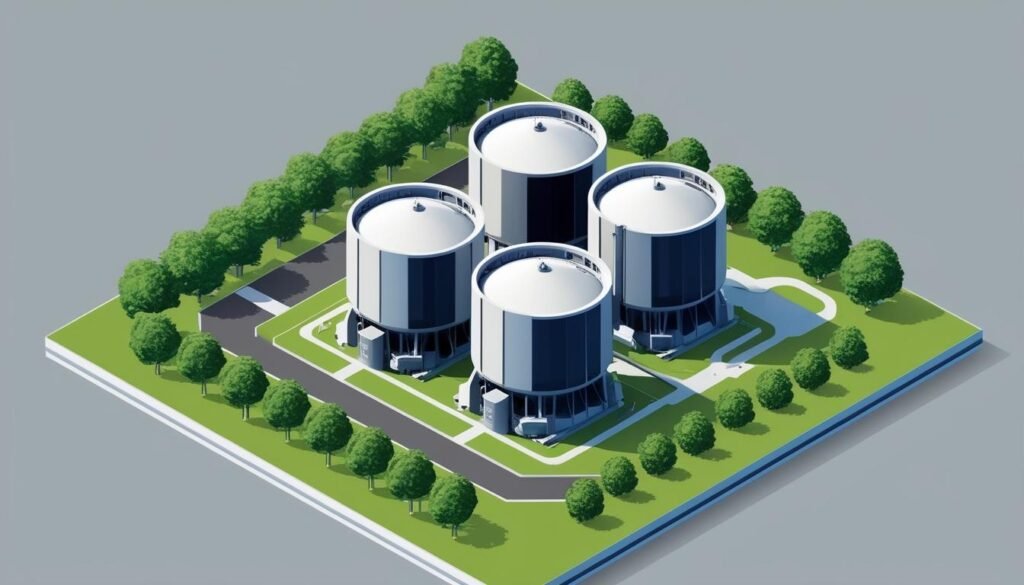Amazon has signed agreements for the development of small modular reactors, marking a strategic move towards sustainable energy alongside tech giants like Google.
Amazon has recently unveiled a significant strategic move towards securing a sustainable energy future by signing a series of agreements for the development of small modular reactors (SMRs). This announcement comes on the heels of Google’s declaration of similar ambitions, showcasing the growing interest of technology giants in nuclear power as a source of carbon-free electricity.
Amazon’s agreements are primarily aimed at facilitating the construction of advanced nuclear energy sources. The company has signed a notable agreement with Energy Northwest, a consortium based in Washington state, to build four SMRs by the early 2030s. This venture will be located near an existing nuclear facility in Richland, Washington. As part of the agreement, Amazon has committed to funding the initial feasibility phase of the project. Upon completion, these reactors are projected to deliver a combined capacity of 320 megawatts, with further plans to expand the site potentially accommodating up to 12 units that could generate up to 960 megawatts of electricity. This capacity would suffice to power approximately 770,000 homes in the United States.
Furthermore, Amazon is extending its involvement by investing in X-energy, a startup pioneering an advanced nuclear reactor design. This design, known as the Xe-100, features a high-temperature gas-cooled reactor and is intended for utilisation in the Energy Northwest project. Beyond the Washington location, X-energy plans to leverage Amazon’s $500 million Series C-1 financing to complete its reactor design and licensing, and to develop a fuel fabrication facility in Oak Ridge, Tennessee. The broader goal is to establish a framework for deploying over 5,000 megawatts of new SMR projects across the U.S. by 2039.
Additionally, Amazon is collaborating with Dominion Energy in Virginia to explore the potential for an SMR project near the North Anna nuclear power station. Virginia, a significant hub for energy-intensive data centres, anticipates a doubling in electricity demand over the next 15 years. The proposed project would aim to deliver around 300 megawatts of power.
These developments underscore a shift towards nuclear energy amidst a landscape where data centres and artificial intelligence services demand ever-increasing power supplies. While renewable sources like solar and wind remain part of tech companies’ strategies to attain clean energy goals, the intermittency of these sources poses challenges. In contrast, nuclear reactors offer a stable and continuous supply of electricity irrespective of time or weather conditions.
Despite these ambitious plans, the path to realising the benefits of SMRs is laden with regulatory and economic challenges. The United States Nuclear Regulatory Commission is yet to approve many of the designs necessary for widespread adoption of this technology. The history of projects like NuScale Power, which after facing escalating costs scrapped plans for a demonstration power plant, highlights the potential hurdles ahead.
Nevertheless, the potential integration of SMRs aligns with broader goals of technology companies to achieve net-zero carbon emissions. Both Google and Amazon have articulated commitments towards powering their operations with renewable energy by 2030. While they have made significant strides, the continuous expansion into areas requiring increased energy—such as artificial intelligence—demands more robust energy solutions.
As technology companies grapple with these challenges, nuclear energy presents a feasible alternative that could complement existing renewable sources, offering a blend of reliable and emission-free power. This approach potentially positions these tech giants not just as consumers of energy but as key players in reshaping the energy landscape to meet both their needs and climate commitments.
Source: Noah Wire Services
















